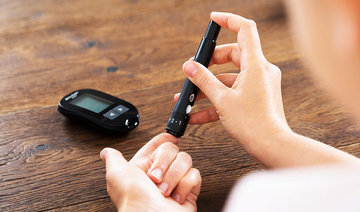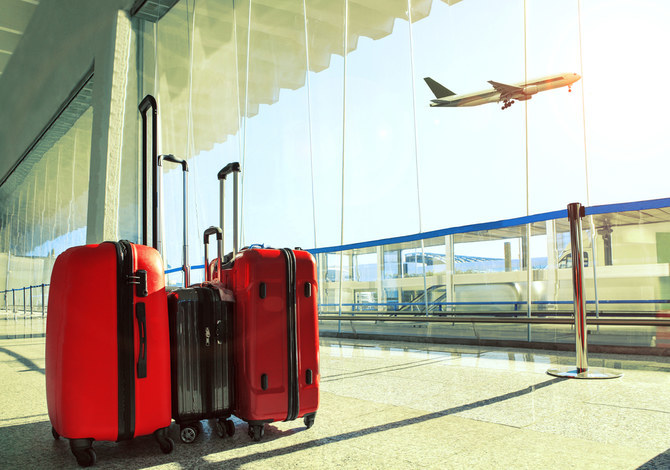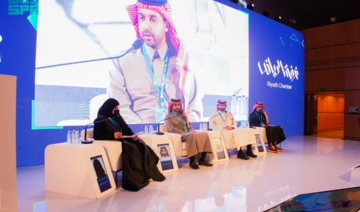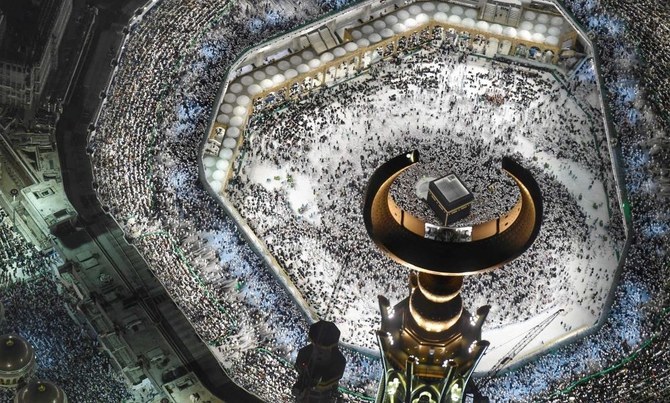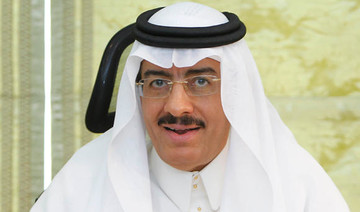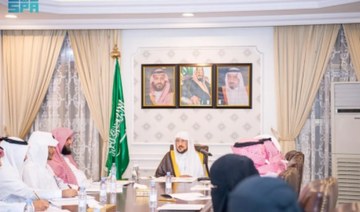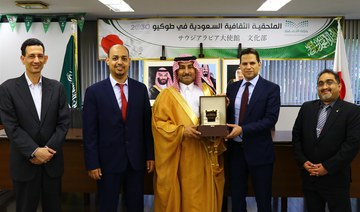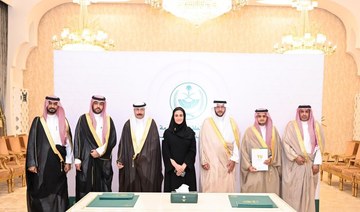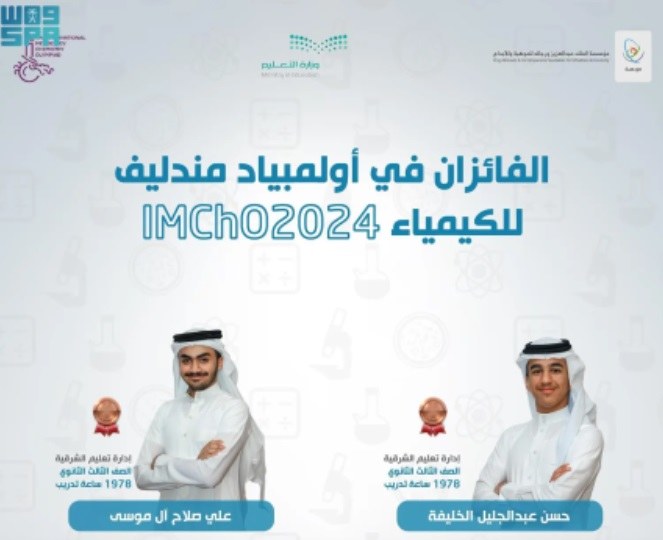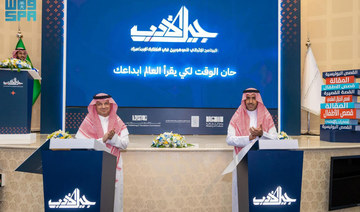Countries across the Gulf need to implement strict protocols to restrict access to junk food, encourage healthier lifestyles and ensure diabetics are diagnosed in the early stages of the disease or the number of people in the region living with the condition could more than double by 2045, experts say.
Almost 4 million people in Saudi Arabia are living with diabetes while countries in the Middle East and North Africa top worldwide charts when it comes to allocating health care budgets to treat the soaring number of people suffering from the chronic disease.
Global experts have hailed measures in the Kingdom — including taxing sugary drinks, fitness initiatives and focusing on preventative care — to stem the rising epidemic. However, Prof. Adel El-Sayed of the International Diabetes Federation (IDF), Middle East and North Africa (MENA) region, said that “there is a lack of urgency to reverse the trend” across the wider region.
“They absolutely need to improve diabetes prevention programs if they are to avoid a future health crisis,” said El-Sayed, adding that “diabetes estimates have been on the rise for several decades.”
 The latest IDF estimates indicate that 39 million adults (20-79 years) are living with diabetes in the MENA region. Specifically in Saudi Arabia, 3.8 million adults are estimated by the IDF to be living with diabetes, while 1.2 million adults are estimated to have diabetes in the UAE.
The latest IDF estimates indicate that 39 million adults (20-79 years) are living with diabetes in the MENA region. Specifically in Saudi Arabia, 3.8 million adults are estimated by the IDF to be living with diabetes, while 1.2 million adults are estimated to have diabetes in the UAE.
El-Sayed said that Gulf Cooperation Council (GCC) countries such as Saudi Arabia (17.7 percent) and the UAE (17.3 percent) have significantly higher diabetes prevalence rates than global (8.8 percent) and regional (10.8 percent) rates. Last year there were 14,665 diabetes-related deaths in Saudi Arabia.
El-Sayed praised work done by the Kingdom but stressed the need for further work both in the country and across the wider region. “The Kingdom of Saudi Arabia is focusing on strengthening health care by improving the access to care at the primary health-care centers. Screening for non-communicable diseases including diabetes management is a must.
“It is a big task and more needs to be done very aggressively. The target is to have a zero percent rise in deaths due to diabetes by 2025.”
According to the IDF, about 425 million people worldwide have diabetes and more than 39 million of those live in the MENA region. By 2045, this number will rise to 82 million. About 90 percent of cases are Type 2 diabetes, which is largely preventable through regular physical activity and a healthy and balanced diet.
In 2014, worldwide governments committed to attempt to reduce the rise in diabetes to zero percent following recommendations by the World Health Organization (WHO). As yet, just five countries are on track to achieve this goal.
“Not enough is being done to implement cost-effective programs and policies to prevent Type 2 diabetes,” said El-Sayed. “Improving awareness, investing in education to promote prevention, early diagnosis and treatment, and ensuring affordable access to medication and care are critical to controlling the epidemic.”
Diabetes can cause heart and kidney disease, strokes, leg amputation, blindness and mental diseases such as depression.
“Over the past decade, the evolution in global health-care expenditure on diabetes in adults (20-79 years) has been tremendous, growing from $232 billion in 2007 to $727 billion in 2017,” said El-Sayed. This economic burden is projected to grow by 7 percent by 2045. “This is a very conservative estimate as it assumes that the average expenditure per person will remain constant,” said El- Sayed. The IDF MENA region has the highest percentage (17 percent) of health-care budget allocated to diabetes of all the IDF regions.”
El-Sayed praised initiatives in the Kingdom such as measures introduced last June when Saudi Arabia became the first GCC country to impose an excise tax at 100 percent on tobacco products and energy drinks, and 50 percent on soft drinks.
Kamil M. Salamah, secretary- general of the Saudi Diabetes and Endocrine Association (SDEA), said that the GCC, as well as Saudi Arabia, are among the worst globally in terms of prevalence of diabetes. “Prevalence is on the rise — at an average approximating 24 percent and rising with the exception of Oman. Unless strict measures are enacted, the prevalence is expected to reach 35 percent, if not higher.” Despite the figures, there are many GCC residents in Saudi Arabia and the wider GCC who have “hidden diabetes” and are failing to be diagnosed or treated, said Salamah.
“Early diagnosis is very important because either it can be reversed to normal by adopting healthy lifestyles or managed properly to prevent complications, which are very costly.”
Salamah said that steps have already been taken in Saudi Arabia and the wider GCC to encourage personal responsibility for health care to stem the rising epidemic. Measures include implementing front-of-pack food labelling and wide-ranging fitness initiatives.
“In addition, the Kingdom of Saudi Arabia has officially kicked off various female sports initiatives, while the General Sports Authority has been created to help both genders in their physical activities needs and initiatives.”

About 90 percent of cases are Type 2 diabetes, which is largely preventable through regular physical activity and a healthy and balanced diet. (Shutterstock)
Salamah said that the Saudi Food and Drug Administration (SFDA) will also impose strict criteria on the healthy content of foods and beverages with clear labelling of sugar, salt, fats, fiber etc and penalties for violation will be enforced.
“Additionally, the Kingdom’s Ministry of Health has committed to, and started, the transformation of health care by focusing on primary health-care centers to be the real ‘access to care’ — where the focus is the prevention of non-communicable diseases (NCDs), which includes diabetes, hypertension, obesity and cardiovascular diseases. These centers will ensure continuity of care and management of disease to prevent complications. This is a very core part of the transformation.”
Soaring rates of diabetes come with a high price tag.
“Economically, diabetes costs no less than 35 percent of the annual budget of the Ministry of Health (in Saudi Arabia); and this is just the cost of management, not including the complications,” said Salamah.
He said initiatives that could curb the prevalence of diabetes include introducing zero tolerance to sugar-sweetened drinks in schools, colleges and universities; heavily taxing food with a high sugar content; better integration
of physical activity in schoolcurriculums; holding sports championships in schools and universities; developing “exercise-friendly cities” where families can exercise and walk; and encouraging companies to develop green environments for their employees.
More controversial tactics, he said, could include banning fast-food chains and late-night takeaway deliveries after 7pm to prevent unhealthy late-night eating and banning media advertisements of unhealthy foods and beverages.
“The Kingdom’s goal is to halt the rise of diabetes by 2030 to level the curve,” he said. “That would be a remarkable achievement.”
Dr. Shaimaa Mashal, a specialist in internal medicine at the UAE’s Bareen International Hospital, said that the prevalence of diabetes is on a “rapid upsurge” in the region.
“It is extremely worrying that the MENA region contains five of the top 10 countries with the highest prevalence of diabetes worldwide. There is an urgent need for epidemiological initiatives to address this problem,” she said.
“Diabetes is placing huge economic strain on health providers, governments and insurers — but with early detection and disease management, as well as strong prevention programs, that cost can be reduced. In some cases, with careful and often drastic lifestyle alterations, Type 2 diabetes can even be reversed.”
Dr. Fathi Yousef Al-Giurani, a consultant in internal medicine at the UAE’s Medeor 24x7, said that diabetes has risen about tenfold in the past three decades in Saudi Arabia.
“The health burden due to diabetes in Saudi Arabia is predicted to rise to very high levels unless a wide-ranging epidemic control program begins, with a great emphasis on advocating a healthy diet, including exercise and active lifestyles, and weight control,” warned Al-Giurani. “However, both increasing population and a greater understanding of the condition among the communities have also contributed to the increase in patients diagnosed with diabetes.”



